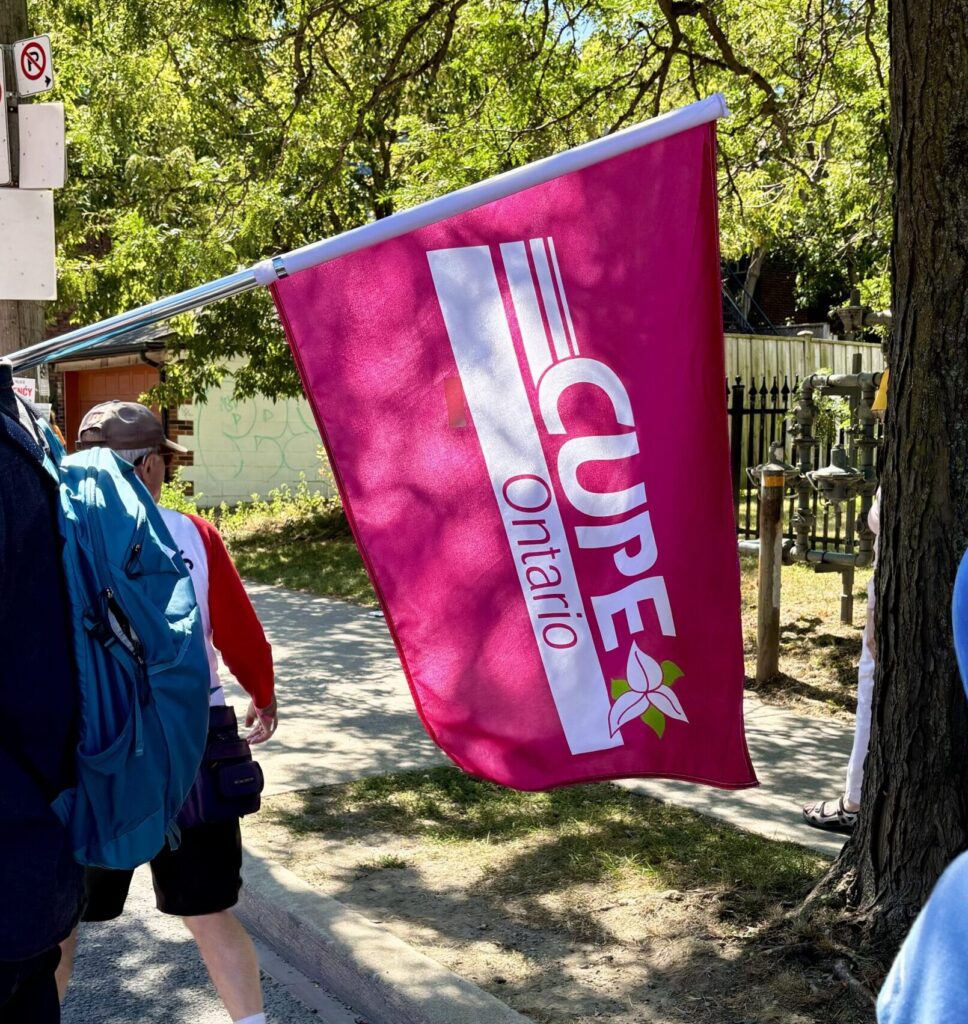
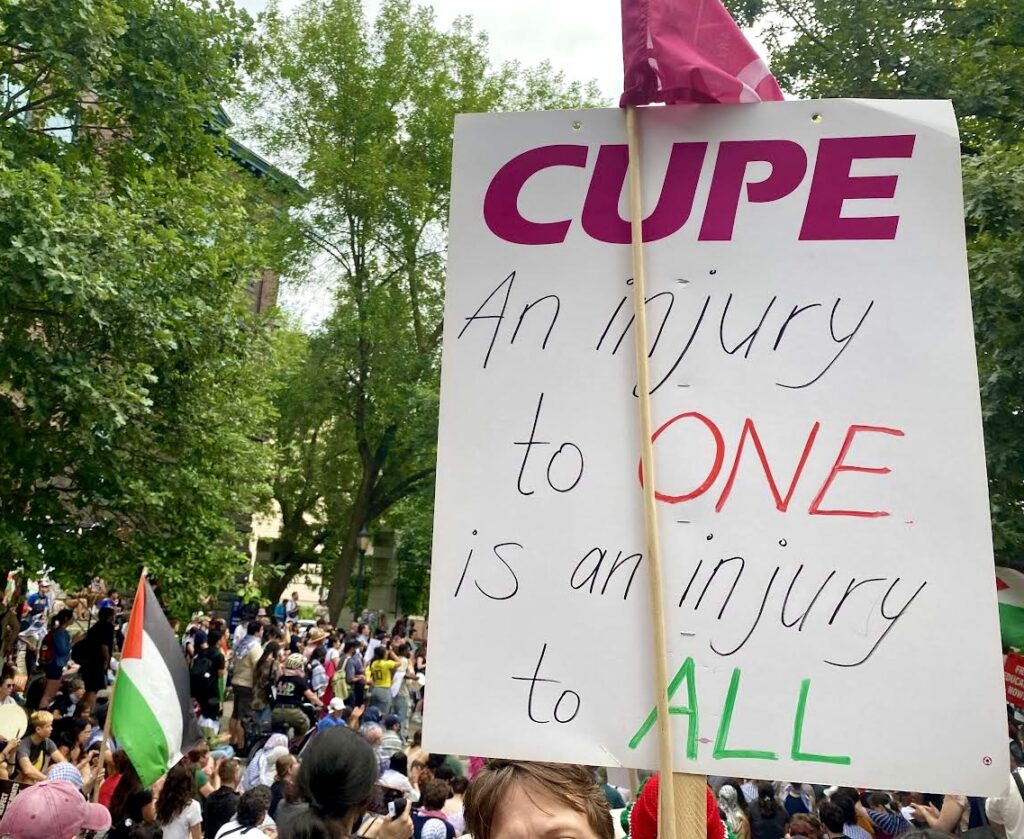
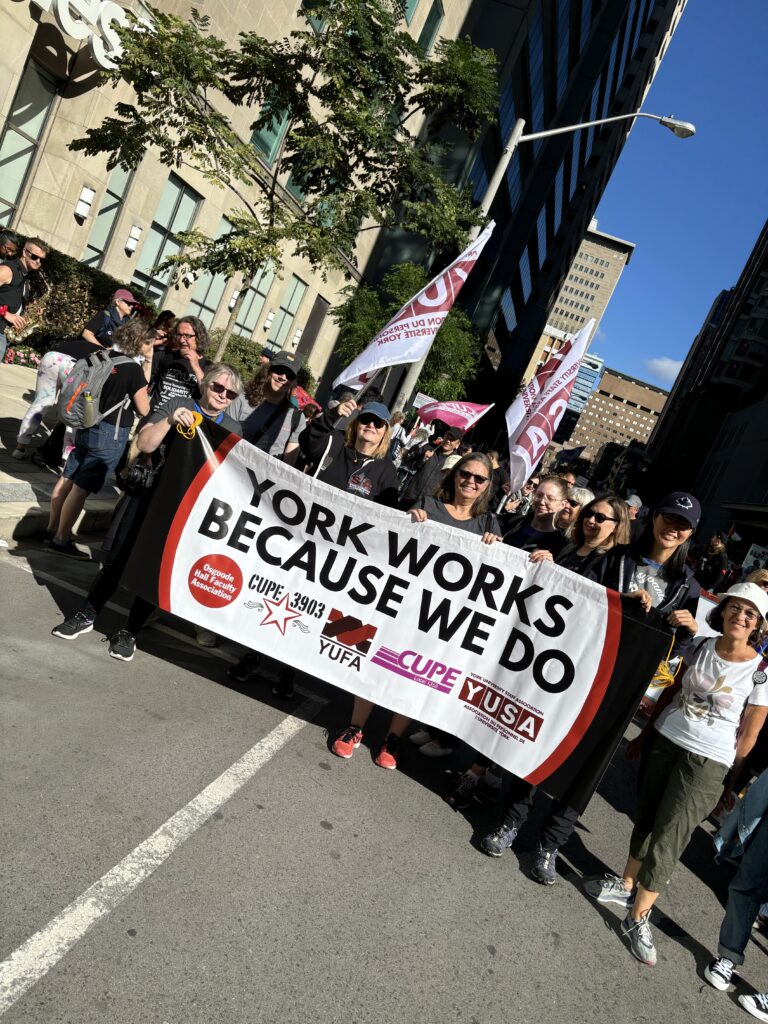
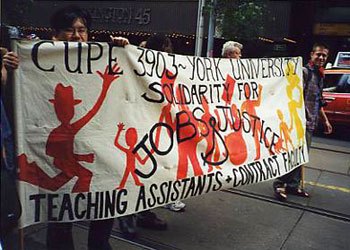
CUPE 3903 represents the contract faculty, teaching assistants, graduate assistants, research assistants, part-time librarians and archivists, and employees of the Canadian Observatory on Homelessness at York University. With around 3,000 members, CUPE 3903 is the largest labour union on campus. Our local is a member of the Canadian Union of Public Employees (CUPE), Canada’s largest union with over 628,000 members across the country. CUPE represents workers in health care, emergency services, education, early learning and child care, municipalities, social services, libraries, utilities, transportation, airlines, and more. CUPE has more than 70 offices across the country, in every province.
CUPE 3903 organizes to improve the working conditions of the nearly 3,000 education workers at York University who comprise our membership. Improvements in our working conditions also improve the learning conditions and environment of the wider York University community. York University is credited with having one of the best funding packages for graduate students and some of the best benefits for contract employees. These are the result of hard-fought organizing efforts to win these rights and benefits in our Collective Agreements.
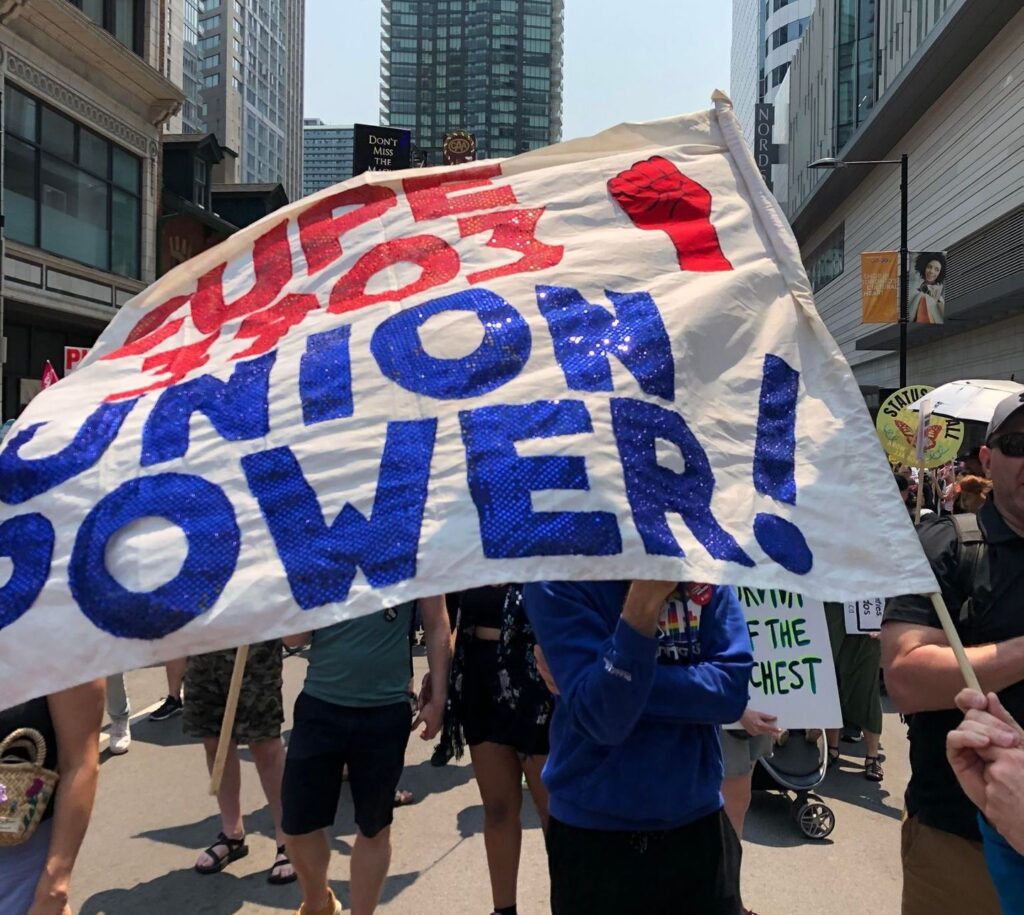
In order to sustain these gains, and through the democratic mandate of our membership, our local has used strike action and other tactics to oppose the administration’s attempts to cancel tuition indexation language and to erode job security. While we organize to defend our progressive contract, we also recognize the need to defend the learning conditions of all students who seek accessible, high quality education at both the undergraduate and graduate levels.
Unions and the labour movement are committed to social justice and improving the lives of communities and working people. Our local is proud to be active in the struggle for living wages for all, an end to homelessness, for a women’s right to choice, for fair trade policies, for protection of the environment, and for good public services. We believe our social mandate is to improve the conditions of not only our members, but also the wider working class.
CUPE 3903 is composed of five units composed of members who do different kinds of work at York University. While our work may be different, all units share a common goal of improving working conditions at York University, and support each other in achieving this goal.
Represents all full-time graduate students who work as teaching assistants, lab demonstrators, marker/graders, tutors, or other teaching-related duties.
Represents all course directors, teaching assistants, lab demonstrators, marker/graders, tutors, or other teaching-related jobs who are not full-time graduate students, except those at Osgoode Law School, the Schulich School of Business, the department of Administrative Studies, or the School of Continuing Studies.
Represents all unionized full-time graduate students doing research, administrative, or clerical work that is not directly tied to the advancement of their own studies.
Represents all part-time librarians and archivists at York University.
Represents all employees at the Canadian Observatory on Homelessness, except supervisors
Each unit has its own collective agreement, which determines the conditions of work. Each unit also has its own Lead Steward who sits on the executive committee. Each unit elects their own bargaining team and votes on their proposed agreements separately; however, Units 1, 2, and 3 bargain together. Click here for the list of 2026 Bargaining Team members for Units 1, 2, and 3!
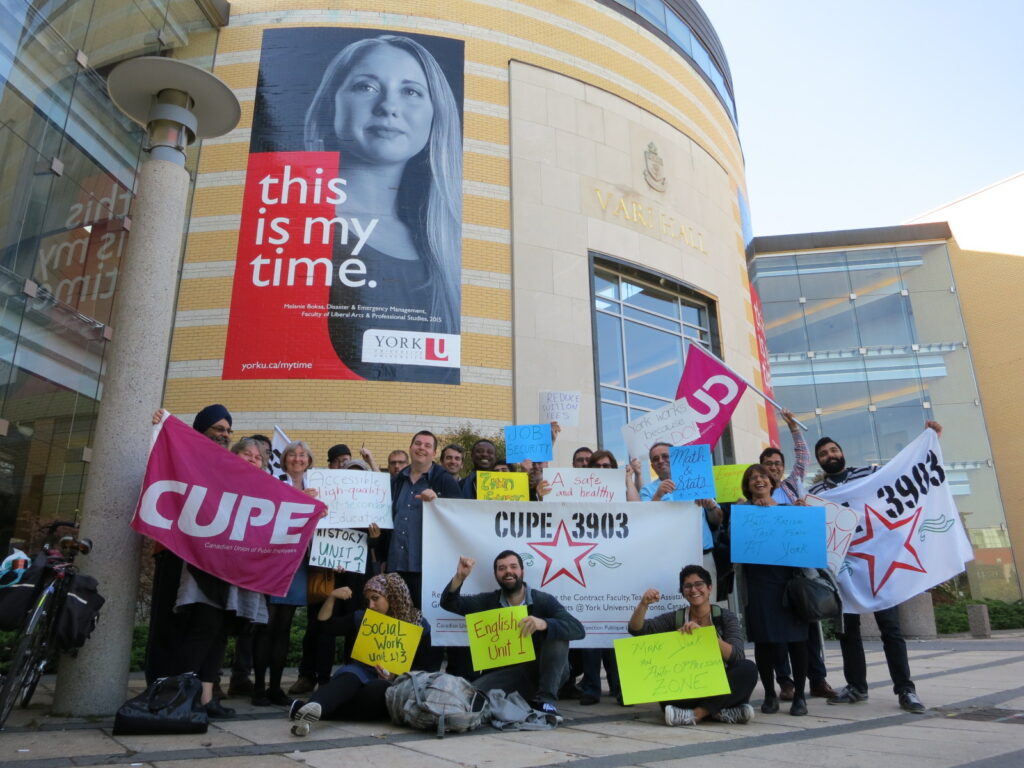
CUPE 3903 has many different bodies and committees, all run by members just like you, which fill different roles that allow the union to function.
All members in good standing of CUPE 3903 have an equal voice and vote, and together represent the highest decision-making body of the union. There are monthly General Membership Meetings (GMMs) during the academic year (and sometimes in the summer) at which all the most important decisions are discussed and put to a vote. Since the membership is the highest decision-making body of the union, it stands to reason that all other bodies should be as transparent and accountable as possible in their work. As a member, you ARE the union. As such, you have the right to fully know, understand, and participate in what is happening in your union.
The Executive Committee is an elected body which is responsible for the day-to-day operations necessary to execute the will of the membership, including managing staff. There are 14 positions responsible for various tasks and representing all five units.
The Executive Committee is elected for a one-year term at the yearly Annual General Meeting (AGM) in March. The exec meets at least twice a month; these meetings are always open to members, although only executive committee members can vote.
Each department or hiring unit should have at least one rank-and-file member who acts as steward for their unit. Stewards are an essential first point of contact between members and the union, and can answer questions, connect members with resources, and ensure that their colleagues are informed of what’s going on.
Stewards meet once a month as Stewards’ Council (SC). SC is led by the four Lead Stewards and acts as a body for stewards to share what’s happening in their workplaces, brainstorm solutions, and work together on campaigns.
During bargaining, SC becomes the Bargaining Mobilization Committee (BMC) and takes an active role to support the bargaining team and keep members informed of negotiations. In the case of a successful Strike Mandate Vote, the BMC turns into the Strike Committee, which, along with the executive, bargaining team, and other committees, prepares the logistics of any potential strike action.
A caucus is a group of union members who share a protected characteristic. Caucuses are autonomous and have their own budget, procedures, and representatives. However, caucuses must be approved by the general membership as a bylaw change.
Currently, the active caucuses are the Trans Feminist Action Caucus (TFAC), which consists of all women, trans, gender queer and gender variant members of the Local, and the newly reinvigorated BIPOC Caucus. Historically, there has also been a Trans Caucus!
Committees are an essential part of the union’s work. The work of committees is self-contained, often confidential, and always member-run. Committees adjudicate funds, do research, represent the union on various bodies, and work on specific tasks. Whatever your interests and talents are, if you want to get involved, there’s a committee (or several!) for you.
All committees have a yearly honorarium attached for your participation. These amounts vary between committees depending on the nature and projected volume of the work.
Working groups are rank-and-file initiatives to fulfill particular tasks or causes. While they are autonomous and self-directed, the creation of a Working Group must be approved by the general membership. Working groups are accountable to the general membership and report on their initiatives and expenses. Unlike committees, whose members are elected, working groups are open to all members.
The longest lasting working group in CUPE 3903 is the First Nations Solidarity Working Group, which liaises directly with Indigenous communities to provide aid and solidarity where needed.
The CUPE 3903 Palestine Solidarity Working Group is comprised of rank-and-file union members dedicated to advocating for Palestinian liberation through various events and initiatives at York University.